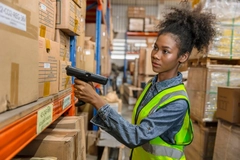Oxo-biodegradable plastic should increase worldwide market share

"Oxo-biodegradable plastic will not only survive competition from other plastics, including bio-based plastics, but looks set to increase its worldwide market share dramatically," according to Michael Stephen, Deputy Chairman of the Symphony Environmental Technologies Group, giving a special presentation at the national plastics exhibition “Interplas” at the NEC in Birmingham.
"Oxo-biodegradable plastic will not only survive competition from other plastics, including bio-based plastics, but looks set to increase its worldwide market share dramatically," according to Michael Stephen, Deputy Chairman of the Symphony Environmental Technologies Group, giving a special presentation at the national plastics exhibition “Interplas” at the NEC in Birmingham.
He explained that oxo-biodegradable plastic has the same strength and versatility as normal plastic but is specifically designed to address this problem, because at the end of its pre-determined lifespan it converts in the open environment into a material with a completely different molecular structure. At that stage it is no longer a plastic and is inherently biodegradable in the same way as a leaf.
"This is its core value," he said. "More and more food companies and retail groups around the world are beginning to understand the contribution it can make to their environmental credentials and to protecting their brand at little if any extra cost. The plastics industry is also beginning to realise that they need it in order to protect themselves from the allegation by environmental groups and governments that their product will not degrade for hundreds of years."
"In the Middle East there is already legislation requiring all short-life plastic to be made with this technology. They rejected bio-based plastics because they have to be collected and taken to a composting factory".
During his presentation, Michael Stephen explained in which applications oxo-biodegradable plastic was best used and not used, and compared it with bio-based plastics. He also discussed R&D and likely future applications.
He drew attention to the Life-Cycle Assessment published by the UK Environment Agency this year which showed that oxo-biodegradable bags have a better LCA than paper or compostable plastic bags. He also focused on the scientific dossier submitted by the British Plastics Federation earlier this year which proves the degradability, biodegradability, recyclability, and non eco-toxicity of oxo-biodegradable plastics.
Source: Symphony Environmental Technologies Group











